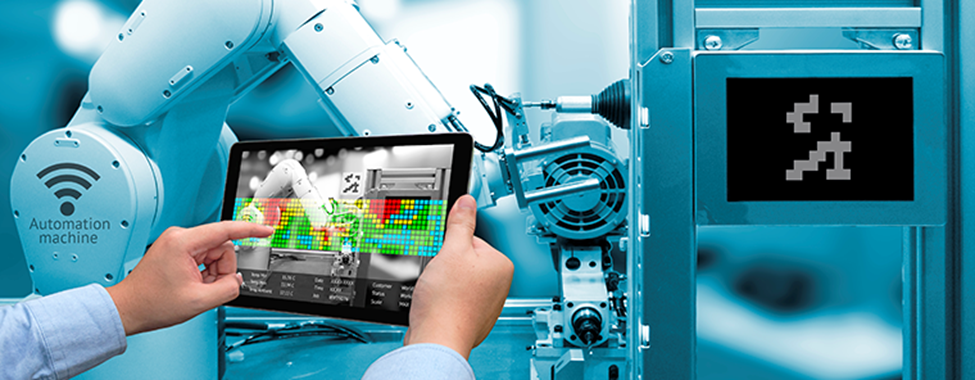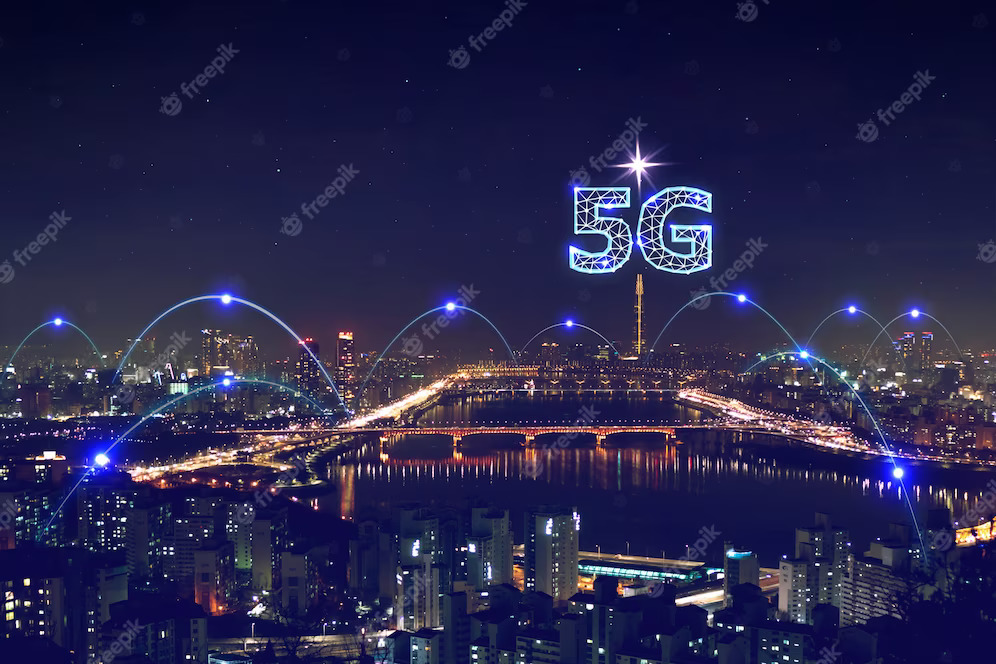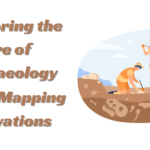5G’s Impact on Industry 4.0: Transforming Manufacturing and Automation
- 1 Understanding 5G Technology
- 1.1 The Next Generation in Mobile Connectivity
- 1.2 Features of 5G
- 1.3 Hallmarks of a Technological Marvel
- 1.4 Pros of 5G
- 1.5 Why Everyone is Buzzing about It
- 1.6 Cons of 5G
- 1.7 Every Silver Lining Has a Cloud
- 1.8 The Industry 4.0 Revolution
- 1.9 The Fourth Industrial Age Comes Alive
- 1.10 5G and Smart Factories
- 1.11 Crafting Intelligent Manufacturing Hubs
- 1.12 5G and Remote Robotics
- 1.13 Commanding Machines from Afar
- 2 Further Implications of 5G in Industry 4.0
- 2.1 Supply Chain Optimization
- 2.2 Predictive Maintenance
- 2.3 Augmented Reality (AR) and Virtual Reality (VR) Training
- 2.4 Real-time Analytics and Decision Making
- 2.5 Energy Management and Sustainability
- 3 Charting a 5G-Infused Future
In an era of rapid technological evolution, the nexus between 5G and Industry 4.0 stands as a beacon of innovation. Both individually significant, their convergence promises to reshape industries in unprecedented ways.
This article delves into the exciting interplay between 5G technology and Industry 4.0, spotlighting how they together revolutionize modern manufacturing, automation, and more. Buckle up as we journey through this transformative synergy and its implications.
Understanding 5G Technology
Before delving into the synergies between 5G and Industry 4.0, it’s crucial to understand the essence of 5G. Beyond being a buzzword, the fifth-generation cellular technology promises a paradigm shift in communications, making it a game-changer in a digitally driven world.
The Next Generation in Mobile Connectivity
5G, standing for the fifth generation, is the latest advancement in cellular technology. It doesn’t simply offer faster speeds than its predecessor, 4G. Rather, it’s a seismic shift that brings ultra-reliable, low-latency communication to the fore.
Features of 5G
5G is more than just speed. While it undoubtedly promises faster data transfers, it’s the myriad of features, many of which are groundbreaking, that sets it apart from its predecessors. From enabling connected smart cities to fostering innovations, 5G’s capabilities are expansive and transformative.
Hallmarks of a Technological Marvel
Among its stellar features, 5G boasts of massive device connectivity, high data rates, and an ability to function seamlessly in crowded areas. It’s not just about browsing and streaming anymore; it’s about powering smart cities, industries, and breakthrough innovations.
Pros of 5G
Amidst the wave of technological advancements, 5G has emerged as a harbinger of benefits that can redefine user experiences and business operations. It’s not merely an upgrade; it’s an overhaul of how we perceive and utilize connectivity, fostering potentialities that were once considered utopian.
Why Everyone is Buzzing about It
5G’s strengths lie in its lightning-fast data transfer speeds, reduced latency, and its potential to connect a multitude of devices simultaneously. It’s a catalyst that empowers everything from immersive augmented reality experiences to automated vehicles.
Witness Industry 4.0’s evolution empowered by 5G, accelerating manufacturing and automation; akin to how 5G propels processes like on BetMGM Virginia platform, into seamless, high-speed realms. The scope isn’t limited to factories and robotics. 5G’s influence trickles into supply chain management, predictive maintenance, and even augmented reality training modules.
Cons of 5G
Every innovation, no matter how groundbreaking, has its set of challenges. As industries and consumers prepare to embrace 5G, it’s essential to discuss the potential pitfalls or concerns, ensuring a holistic understanding and paving the way for informed adoption.
Every Silver Lining Has a Cloud
However, 5G isn’t without its challenges. Infrastructure costs, concerns about energy consumption, and fears around potential health risks (though largely debunked) have been raised as barriers to its full-fledged adoption.
The Industry 4.0 Revolution
The concept of Industry 4.0 isn’t just another industrial phase. It’s a profound shift that intertwines digital technology with traditional industrial practices, creating an ecosystem where machines, systems, and humans coalesce in a seamlessly integrated dance.
The Fourth Industrial Age Comes Alive
Industry 4.0, often termed the Fourth Industrial Revolution, signifies a fresh era in the industrial landscape. Characterized by smart systems and digital connectivity, it’s about factories that ‘think’, processes that ‘learn’, and industries that ‘communicate’.
5G and Smart Factories
Smart factories represent the epitome of Industry 4.0’s vision – an environment where machines are interlinked, operations are optimized, and production is revolutionary. Introducing 5G into this mix is like adding fuel to fire, enhancing capabilities and redefining possibilities.
Crafting Intelligent Manufacturing Hubs
One of the central pillars of Industry 4.0, smart factories, stands to gain immensely from 5G. The real-time, high-speed data transfer capability of 5G enables machinery to interact, analyze and optimize processes instantaneously, marking a departure from traditional manufacturing practices.
5G and Remote Robotics
Robotics, a field that has witnessed dramatic transformations over the decades, is at the cusp of another significant evolution, thanks to 5G. Remote operations, once constrained by latency issues, now find new wings with 5G’s capabilities, promising a future where distance becomes inconsequential.
Commanding Machines from Afar
Remote robotics, an emerging field, finds an ally in 5G. With ultra-reliable, low-latency communications, robotic devices can be maneuvered in real-time from great distances, opening avenues in hazardous environments, space exploration, and more.
Further Implications of 5G in Industry 4.0
While smart factories and remote robotics are flagship applications of the 5G-Industry 4.0 synergy, the implications run deeper. From streamlining supply chains to enhancing maintenance through predictive analytics, the horizon of possibilities is ever-expanding and truly mesmerizing.
The harmonization between 5G and Industry 4.0 does not stop at smart factories or remote robotics. It has begun to touch various facets of industries, bringing a fresh wave of innovative potential and operational excellence. When 5G, with its high-speed data transfer and low-latency capabilities, interlaces with the principles of Industry 4.0, it casts a transformative spell on various sectors. Let’s delve deeper.
Supply Chain Optimization
The traditional supply chain, often fragmented and reactive, gets a 5G facelift. Real-time data exchange powered by 5G can streamline inventory management, track assets with pinpoint accuracy, and predict disruptions. This allows businesses to react in real-time, reducing downtimes and ensuring consistent product availability, thus providing a competitive edge.
Predictive Maintenance
Gone are the days of reactive repairs. With 5G’s capability to transmit vast volumes of data swiftly, machines can now communicate their wear and tear in real-time. Analytics can then predict when a part is likely to fail, allowing industries to perform maintenance just in time, reducing costs, and almost nullifying unexpected downtimes.
Augmented Reality (AR) and Virtual Reality (VR) Training
Training sessions for workers can now transcend traditional confines. Using 5G-powered AR and VR tools, industries can simulate real-life scenarios, providing hands-on experience without actual risks. For sectors like aerospace, defense, or hazardous industries, this could mean safer, more efficient training modules.
Real-time Analytics and Decision Making
The value of timely data in decision-making is unparalleled. 5G, with its rapid data transfer, can support real-time analytics. This empowers industries to make informed decisions instantly, be it in production rates, resource allocation, or quality checks. When every second counts, 5G ensures industries don’t lose out.
Energy Management and Sustainability
As industries grapple with sustainability concerns, 5G can be the beacon. Smart grids, powered by 5G, can optimize energy consumption, reduce wastages, and integrate renewable sources efficiently. This not only trims operational costs but also positions industries as eco-friendly entities in an increasingly environment-conscious market.
As evident, the 5G-Industry 4.0 synergy is poised to redefine industrial landscapes, opening avenues previously deemed unattainable. The future beckons, and it is one of unparalleled efficiency, innovation, and growth.
Charting a 5G-Infused Future
As we stand at the intersection of 5G technology and Industry 4.0, it’s clear that this confluence is not just a fleeting trend. It’s a seismic shift that charts the future course of industries, setting the stage for innovations and efficiencies that we’re only beginning to fathom.
The marriage between 5G technology and Industry 4.0 isn’t just about incremental improvements. It’s about reimagining what’s possible in the realm of manufacturing and automation. As both these forces continue to evolve, industries worldwide stand on the brink of a revolution—one that promises to reshape the way we produce, innovate, and thrive.



















